 +86 20 26211661
+86 20 26211661
 +86 20 26211661
+86 20 26211661
DEF with Additive can promote the decomposition of urea into ammonia, and avoid or reduce urea crystal formation and agglomeration. The additive also disperses, dissolve and eliminate the existing crystalized substances in the tank
Read MoreConcentrated car wash wax water can effectively remove stubborn stains on the car body, even without wiping.
Read MoreIt has two basic functions: firstly, and most obviously, to aid in the cleaning of your screen by lifting dirt away from it as the wipers sweep. But the second of the low temperature screen wash is to keep your washer fluid from freezing in the depths of winter.
Read MoreConcentrated Car wash wax kit is a high quality, waterless washing and waxing product in one to clean and protect your vehicle, with or without water, anytime, anywhere, no restrictions on the internal and external surfaces can be left anti-static non-stick anti-UV coating
Read MoreAntifreeze (Engine coolant), is a liquid substance used in the cooling systems of vehicles to prevent the engine from freezing in cold temperatures and overheating in hot temperatures.
Read MoreEverBlue antifreeze coolant is a specially formulated ready to use engine coolant, for both petrol and diesel engines, it is mixture of mono-ethylene glycol and selected chemical agents to provide outstanding all round protection.
Read MoreLeather protectant spray work by creating a protective barrier that helps to prevent stains, spills, and damage from everyday wear and tear.
Read More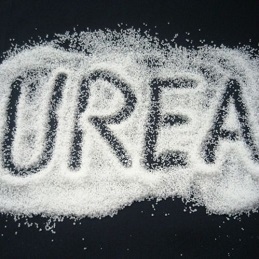
Short-term Expected Development of Urea Granules More new urea plants will be put into operation in the future, which will put obvious pressure on the supply of urea according to our forecast for the demand for urea for vehicles, it is estimated that the demand for urea solution for vehicles will drive the consumption of urea to ¥1.53 million tons in 2022 , ¥1.84 million tons in 2023, ¥2.21 million tons in 2024, and ¥2.65 million tons in 2025. In terms of export, due to the inversion of international prices and the restriction of legal inspection policies, the export volume of urea may continue to remain at a very low level in the future, and the overall export volume in 2023 may be less than ¥2.5 million tons. On the whole, there will be more new urea plants put into operation in the future, which will put obvious pressure on urea supply. On the demand side, be vigilant that after May, the demand for agricultural and industrial fertilizers will not be as high as the growth of domestic urea supply, and the center of gravity of urea futures prices will likely move further down.
More+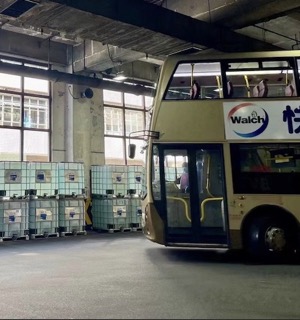
From the Jan 8th,2023, Hong Kong and the Mainland resumed the first phase of quarantine free "customs clearance". On this day, nearly three years have passed since the Hong Kong SAR government began to close the entry and exit gates on February 4, 2020 due to the COVID-19. We immediately went to Hong Kong to visit our old friend, Hong Kong KMB which began in 1933,KMB is the largest urban bus operator in Hong Kong and it is also the pulse of the city. This is the third year we have worked with KMB with our best diesel exhaust environmental treatment services. EverBlue will always maintain a professional attitude and the best quality product AdBlue with worry-free use and look forward to continuing to protect the blue sky of Hong Kong with KMB in the future.
More+Diesel Exhaust Fluid (AdBlue®/DEF) quality control testing per ISO 22241-1. Diesel Exhaust Fluid (DEF) is often referred to as AdBlue® in Europe and other markets. AdBlue®/DEF is required by many modern diesel engine applications using selective catalytic reduction (SCR) technology to reduce the levels of oxides of nitrogen emitted by an exhaust system. AdBlue®/DEF is a very pure 32.5% urea solution and in easy to use. Diesel engines with SCR (Selective Catalytic Reduction) technology are able to reduce emissions of nitrogen oxides from diesel vehicles. The Nitrogen Oxide produced by a diesel engine will be converted into nitrogen and steam and as a result, it will reduce NOx emissions of diesel vehicles to 85%. We see SCR (Selective Catalytic Reduction) technology, in agricultural and forestry machinery, buses, and cars with diesel engines, trains, and in the shipping industry. SCR systems are part of the engine powertrain configuration, and contaminants or impurities in the AdBlue®/DEF could cause the SCR system to malfunction or fail. Thus, it is important to maintain quality standards as characterized in the ISO 22241-1 standard. Intertek provides a full range of prompt AdBlue®/DEF testing and analysis conforming to industry standards. AdBlue®/DEF Quality When testing against quality specifications it is essential that foreign materials do not come into contact with the solution. Full specification testing is performed on a real time turnaround to allow for fast efficient movement of product without impacting the deliverability of these products for your clients to the supply chain. The full specification service provided includes the following parameters. AdBlue®/DEF testing: The AdBlue® trademark is currently owned by the German Association of the Automobile Industry (VDA), who ensure quality standards are maintained in accordance with ISO 22241 specifications: ISO 22241-1 quality requirements, which determine the quality characteristics of the diesel exhaust fluid to ensure the proper performance of the SCR system. This is the main officially approved international standard. ISO 22241-2 specifies test methods required for determining the quality characteristics of the diesel exhaust fluid. Intertek has a proven track record in delivering the results required at a fast turnaround time which is vital to our client's requirements in providing certified material to the market. Operating at a global level our AdBlue®/DEF testing laboratories offer accredited testing presented in easy to read, understandable reports. We can also provide analytical testing of the raw materials from the manufacturing process as well as the final product and can offer various R&D services in regards to contamination issues and in the field problems which develop via our wide network of highly advanced laboratories. Diesel and other distill...
More+In terms of revenue, the Global Adblue Market is expected to reach USD 32.7 Billion by 2028, growing at a CAGR (Compound Annual Growth Rate) of 3.2% from 2022 to 2028. The Adblue market is booming, supported by the increasing number of rules based on carbon emissions, the growing number of top automakers adhering to these standards, and the booming sales of commercial and passenger vehicles. Additionally, the market demand is boosted by the quick advancements in catalytic technology, tightening government restrictions, and the growing range of sectors that use Adblue in vehicles, heavy industrial machinery fueled by diesel, and agricultural machinery. The top companies in the Adblue market have access to lucrative opportunities due to the growing automotive industry in several APAC nations, including China, Singapore, Japan, and India, as well as the adoption of hybrid selective non-catalytic reduction (SNCR) technology in many passenger vehicles. Moreover, the players compete in the market based on product quality, brand recognition, and pricing. Therefore they are concentrating on providing premium Adblue at reduced costs. Key Highlights from Report Based on Types, the Packaging segment dominates the Adblue market with the maximum market share and will continue its dominance during the forecast period. This is because aspartame-free packaged foods and beverages are becoming more common, necessitating the addition of adjuvants like Adblue to maintain their flavor and color. Among Applications, the Commercial segment accounted for the highest growth rate during the forecast period. This is because aspartame-free packaged foods and beverages are becoming more common, necessitating the addition of adjuvants like Adblue to maintain their flavor and color. In terms of region, Europe holds the significant market share within the Adblue market. This expansion results from the rising demand for diesel passenger vehicles and vans without Adblue systems. Market Dynamics The Adblue Market is expanding due to various causes like vastly improved infrastructure, growing industrialization, and increased commercial vehicle demand. A growing number of carbon emission-based regulations, major manufacturers conforming to these regulations, and rising sales of both commercial and passenger vehicles are all contributing to the expansion of the Adblue industry. The low cost of production is another factor that supports business expansion. Additionally, the expanding industry is driven by the rising demand for Adblue in agricultural equipment like tractors, pumps, and harvesters. Besides, phosphate and nitrogen importers are the primary cause of urea dependence in countries like India. This dependence will raise urea demand, and spur the expansion of the Adblue market. Furthermore, the expansion of the targeted market may be constrained by the high cost of installing SCR and the entire system of diesel exhaust fluid tanks. Additional...
More+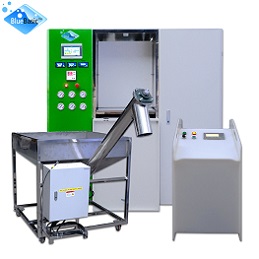
The Bluebasic EBR1500 AdBlue plant is a containerized solution designed to produce Ad Blue according to ISO22241 with double stages of reverse osmosis under pressure and EDI system, meeting with the highest standards of quality and according to VDA requirements with a maximum production capacity of 1000kg/hour. The main production unit is compacted in a compact metal frame. And the automatic screw feeder is delivered separately with the main production unit. The EBR1500 production plant consists of four independent units: ① Demineralization unit. ② Mixing System ③ Screw feeding unit. We also have other capacity for you to choose for more information please feel free to let us know.
More+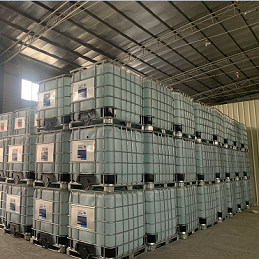
Since October 2021, China has been implementing export controls on special raw materials for AdBlue®. Since October 11, the General Administration of Customs Announcement No. 81 states that from October 15, Customs Supervision Condition B has been increased to 29 customs commodity numbers related to the export of fertilizers, and Customs will check the commodities concerned, including urea (whether the quota contains aqueous solutions(AdBlue®)). That means that AdBlue® exported from China must obtain an inspection and quarantine report from the State Entry-Exit Inspection and Quarantine Bureau before customs clearance. And the process of commodity inspection of AdBlue® are as follow: 1) Prepare the corresponding products for export ; 2) Apply to customs for commodity inspection; 3) Wait for customs to come to the factory to take AdBlue® samples ; 4) Wait for the test result after taking sample; 5) Wait for the export confirmation from China Custom. If you want to receive your goods as soon as possible, you need to place your order as early as possible.Since the release of commodity inspection policy, we have been actively preparing goods and applying for inspection. EverBlue Technology always provide customer with high quality AdBlue® product and various solutions!
More+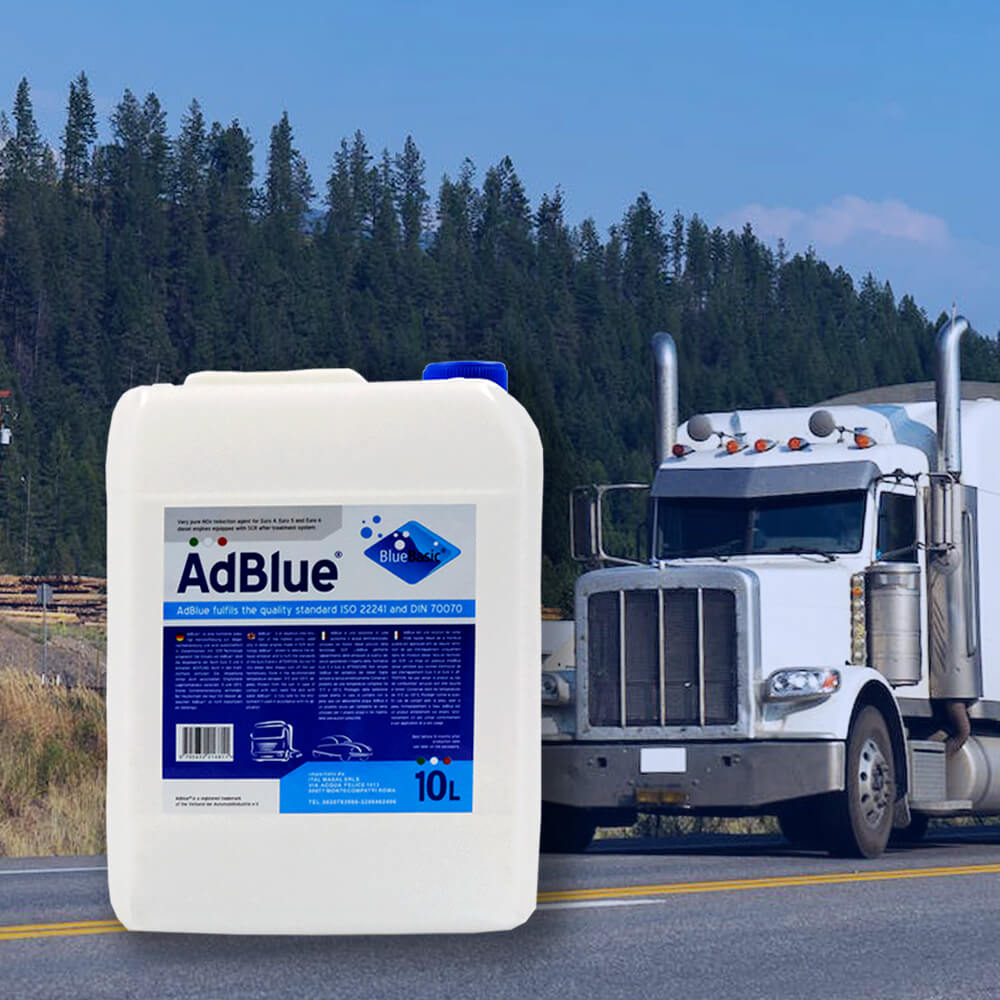
Natural gas shortages are boosting the prices of the crucial AdBlue additive needed by many diesel-powered trucks. Russia's natural gas squeeze is spiking the price of a crucial additive used by millions of trucks across the EU and even raising fears of a potential shortage, the logistics industry is warning. Most diesel trucks on European roads meet EU emission standards thanks to AdBlue, an additive that strips harmful nitrogen-oxide emissions from exhaust. Its use isn't optional: Vehicles are programmed to come to a halt after a few kilometers without it. But the steep fall in Russian gas shipments means that producing AdBlue — a combination of carbon dioxide and ammonia made from natural gas — has become dramatically more expensive. Prices in some cases have shot up by as much as seven times since last year, said Toralf Weiße, chairman of German logistics group Netzwerk Logistik Mitteldeutschland. Although there's no widespread shortage of the additive, those price hikes are making industry — which already faced AdBlue supply hiccups last winter — increasingly nervous. International road transport organization IRU says the EU can't afford to assume there won't be any shortages — especially now that Europe's gas supply is under pressure. “Without AdBlue, new-generation trucks, which represent the majority in long-haul transport, will [come to a stop]," Raluca Marian, EU policy director at IRU, said in a statement. She estimates that about 4 million of the EU's 6.2 million trucks would be affected. She wants Brussels to recognize AdBlue as an “essential product without which logistics chains would stop" and consider building up AdBlue reserves and draw up a contingency plan. “A shortage in the winter must be prevented by all means," she said. AdBlue producer SKW Piesteritz — one of Germany's largest — idled its production stating high natural gas prices. However, the company has since rebooted its plant. Germany's economic ministry said this month that it hadn't registered an AdBlue shortfall, and other producers have said they'll continue to supply the product — even as they're hit by the gas prices hikes. "AdBlue is essentially made from natural gas. The skyrocketing prices therefore have a direct and devastating impact on the cost of AdBlue," said a spokesperson for Norwegian producer Yara. This week, German motorist association ADAC agreed there is no nation-wide supply crunch, but added that it had registered a significant jump in prices. A shortage could have a devastating impact in Germany, where as much as 90 percent of truck traffic relies on the additive, German road haulage association BGL warned last year. Weiße wrote an open letter to Germany's Economy Minister Robert Habeck and Transport Minister Volker Wissing, saying that the price for 1 liter of AdBlue had risen from 17 cents in August 2021 to 65 cents a year later; the additive now costs €1.20 per liter. A large truck needs up to 50 liters of AdBlue every two weeks — making it...
More+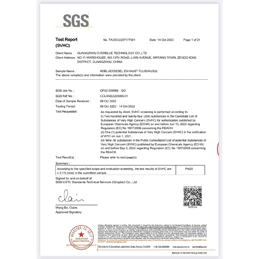
Based on the Candidate List of Substances of Very High Concern (SVHC) published by the European Chemicals Agency as of June 10, 2022 for authorization review (according to EU REACH Regulation No. 1907/2006), 224 substances of very high concern (SVHC ) were screened and tested. According to the specific range and screening test, the SVHC test result in the submitted sample is ≤0.1% (w/w), and our product is passed. All of AdBlue® products got the SGS & ISO & VDA certificates and we will keep the samples of each shipment for quality tracking. What's more ,we do the test with random sample each 1-2 month in international authority such as SGS ,Intertek.We provide AdBlue with more than 13 kinds of package for you to choose!
More+ online service
online service +86 20 26211661
+86 20 26211661 sammi@everblue.com.cn
sammi@everblue.com.cn Sammi Sun
Sammi Sun +86 137 1902 0590
+86 137 1902 0590